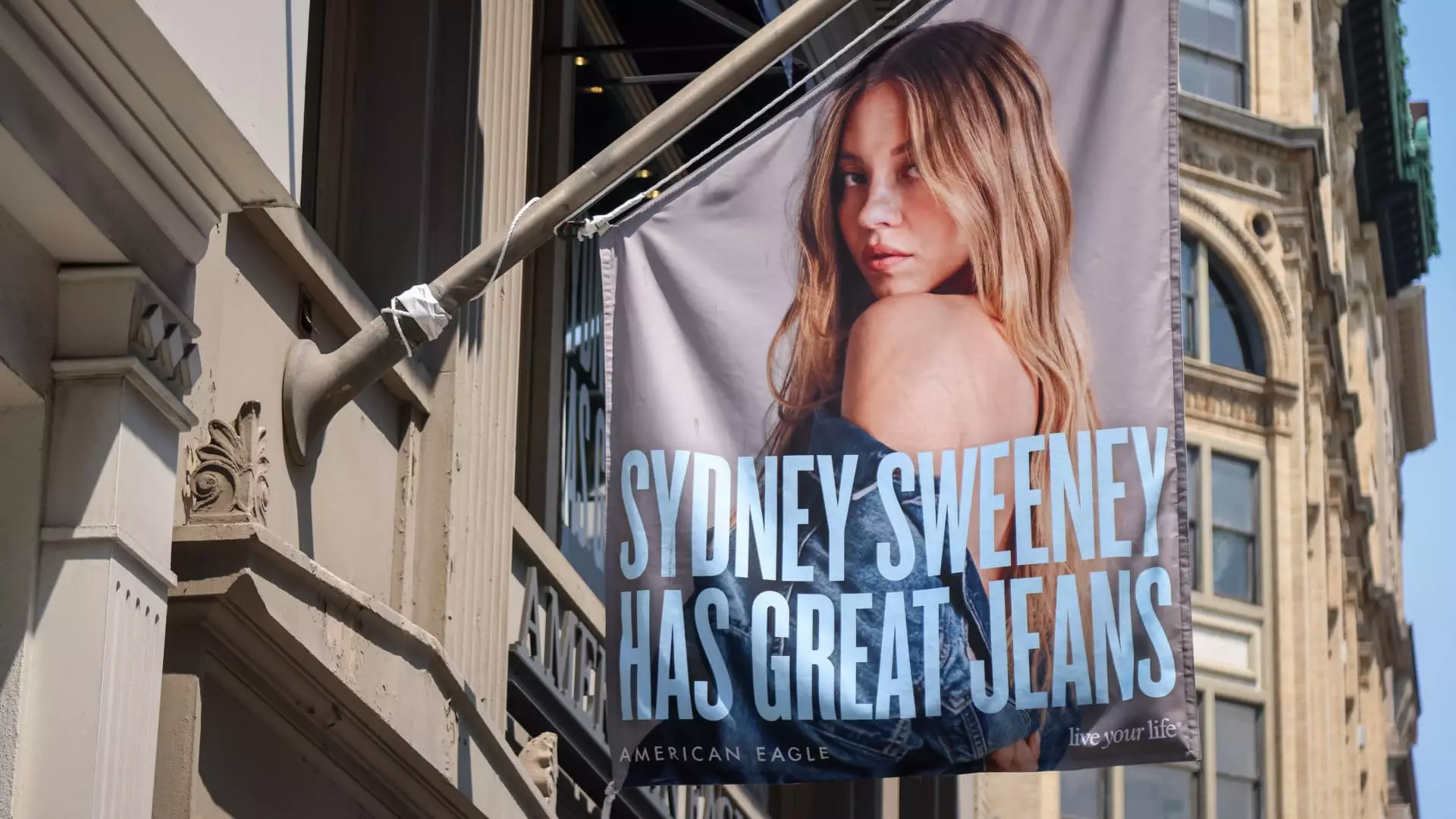American Eagle’s latest marketing stunt reveals a much deeper cultural rift that transcends the retail space. By featuring actress Sydney Sweeney with the bold slogan “Sydney Sweeney has great jeans,” the brand attempted to latch onto a rebellious, confident identity that resonates with a segment of young consumers seeking authenticity. However, this approach has ignited a fierce debate about the purpose of advertising and the boundaries of free expression. Does provocative marketing serve as a genuine reflection of youthful attitudes, or is it merely pandering to spectacle at the expense of substance? In a broader sense, American Eagle’s attempt to appear edgy seems entangled in a contentious tug-of-war over cultural values, exposing the challenges brands face when trying to appeal to an increasingly polarized audience.
While some praise the campaign for daring to break away from traditional, sanitized advertising, critics argue it crosses the line into over-sexualization that many find distasteful and irrelevant. The slogan is accused of being a double entendre that veers into superficiality, elevating aesthetics over authentic messaging. It also raises questions about what a brand’s priorities should be—are they seeking to leverage controversial ideals for short-term attention, or genuinely advocating body positivity and inclusivity? For a company struggling with stagnant sales, these decisions are more than superficial—they are strategic gambits that can either elevate or devastate consumer trust.
American Eagle’s silence on the matter underscores a crucial reality: brands are uncertain about how to navigate this rapidly shifting landscape. While some see this as a bold move that reclaims their rebellious spirit, others worry it risks alienating core customers who feel the campaign is out of touch with modern sensibilities. Here lies a vital insight—marketing must be rooted in understanding audience nuances, not just injected with controversy for the sake of trending.
Reactions and the Political Undercurrent
What is most striking about the recent uproar is how political reactions have influenced market dynamics. President Donald Trump’s endorsement—mocking the actress’s appeal and praising her “hotness”—served as an unsolicited endorsement that unexpectedly propelled the company’s stock upwards by over 20%. This act of political spectacle reveals the extent to which consumer discourse is now intertwined with political identity, further complicating the marketing landscape.
The response from the right-leaning side of the spectrum underscores the shifting allegiances and cultural battles that brands must navigate. American Eagle’s campaign appears to have inadvertently become a symbol in this broader ideological struggle. It’s a stark reminder that in today’s polarized environment, marketing campaigns cannot be apolitical. They carry implicit messages about gender, sexuality, and identity that can alienate or excite different constituencies—sometimes simultaneously.
Yet, this raises a critical question: should corporations lean into these divided sentiments, or beware of the backlash? The answer largely depends on a company’s core values and their understanding of their audience. American Eagle’s inaction—limiting public comments—suggests a cautious approach going forward, weighing the risks of alienating consumers against potential gains. It’s a delicate balancing act that exposes the vulnerabilities of corporations trying to remain relevant amid cultural upheaval.
Economic Realities and Cultural Strategies
Despite the apparent backlash, American Eagle’s campaign coincided with a stir in consumer interest. Google Trends shows a spike in searches for the brand, indicating that controversy can indeed create buzz—even if it’s not immediately translating into sales. However, the truth remains that the company’s financial outlook remains bleak, with shares down and broader macroeconomic challenges looming large. Tariffs, sluggish consumer spending, and inventory issues have hampered growth, and marketing alone cannot undo the underlying economic realities.
What this highlights is the intrinsic tension between cultural expression and market stability. Companies like American Eagle are caught in a conundrum: should they continue to push boundaries to regain relevance, risking alienation, or retreat to safer, more traditional messaging? A more nuanced approach might be to adopt a centrist view—celebrating individual confidence and diversity without resorting to shock tactics. This would be a strategy rooted in authentic engagement, avoiding the extremes that often lead to consumer fatigue or ideological backlash.
The broader implication is that brands operating in today’s culture must recognize their influence extends beyond sales figures—it shapes societal conversations. American Eagle’s endeavor underscores the importance of aligning marketing initiatives with societal values, ensuring they foster genuine connection rather than controversy-induced confusion and division. Only through understanding this delicate interplay can brands hope to build sustainable trust in an era where consumer loyalty hinges on authenticity, not shock value.


Leave a Reply